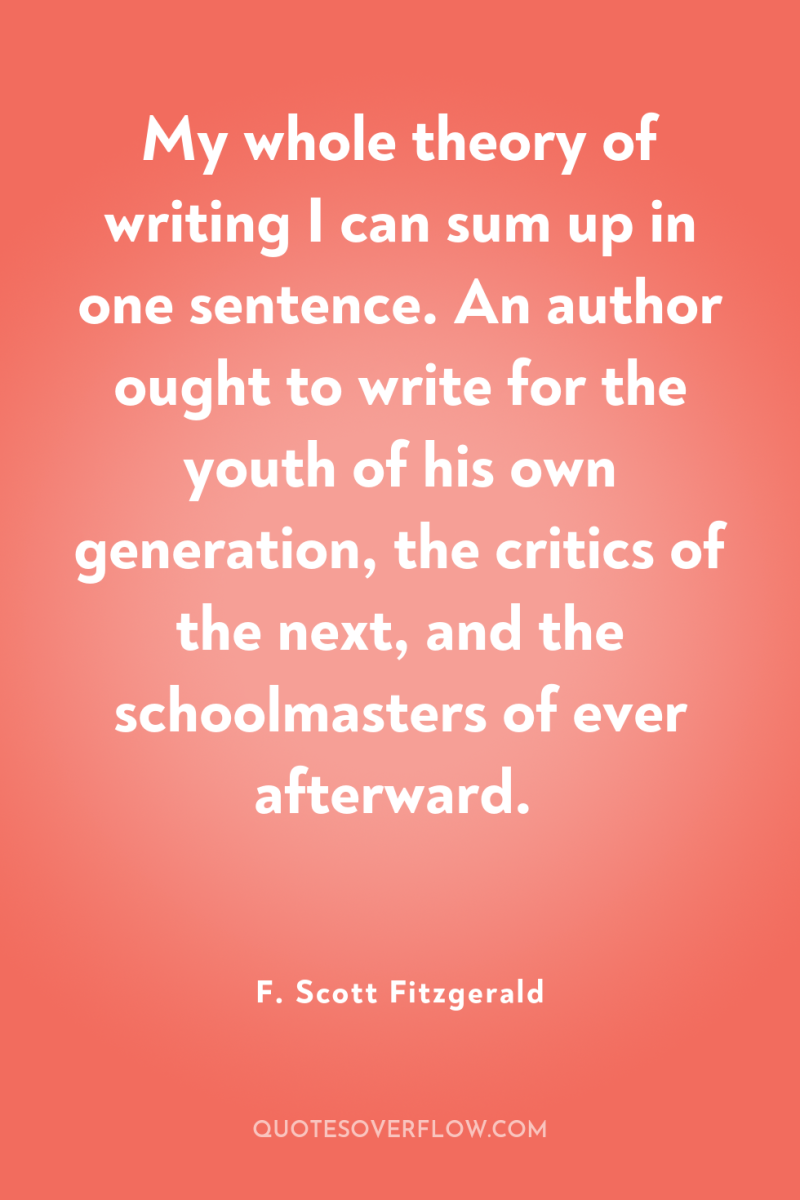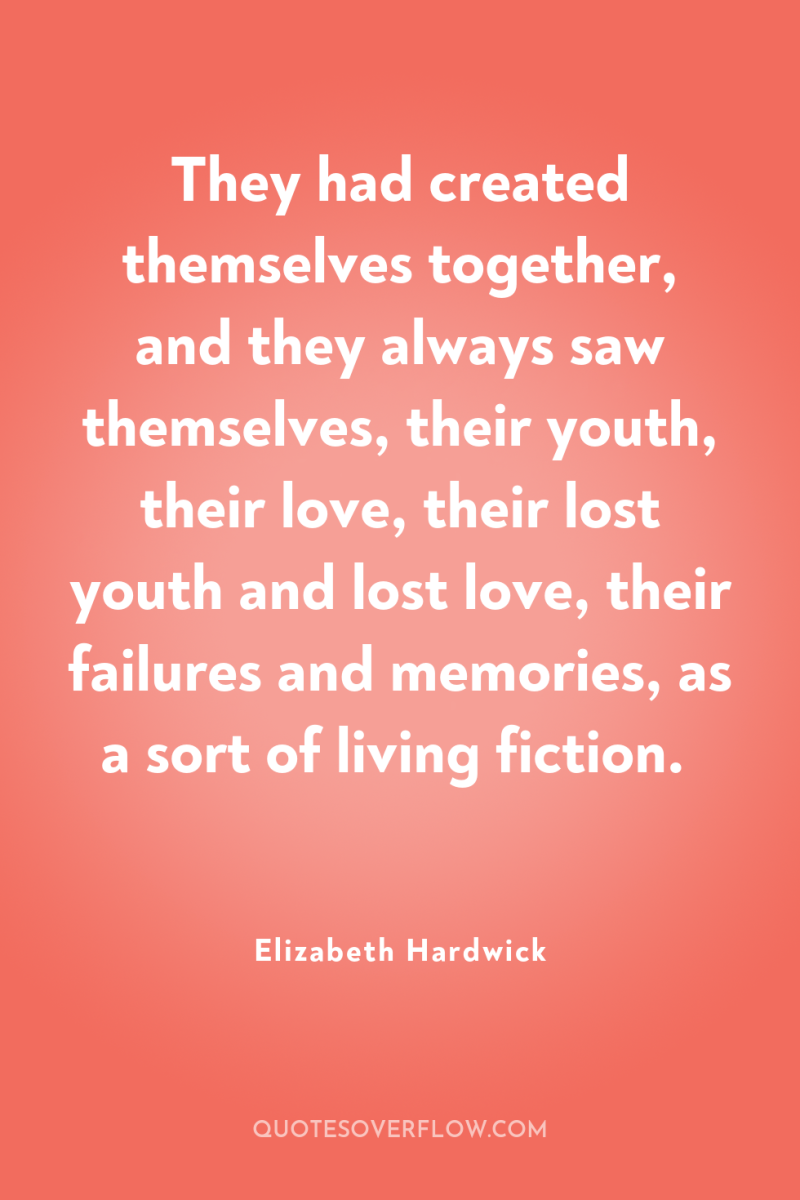
1
My whole theory of writing I can sum up in one sentence. An author ought to write for the youth of his own generation, the critics of the next, and the schoolmasters of ever afterward.F. Scott Fitzgerald

2
They had created themselves together, and they always saw themselves, their youth, their love, their lost youth and lost love, their failures and memories, as a sort of living fiction.Elizabeth Hardwick
3
In this couple defects were multiplied, as if by a dangerous doubling; weakness fed upon itself without a counterstrength and they were trapped, defaults, mutually committed, left holes everywhere in their lives. When you read their letters to each other it is often necessary to consult the signature in order to be sure which one has done the writing. Their tone about themselves, their mood, is the fatal one of nostalgia--a passive, consuming, repetitive poetry. Sometimes one feels even its most felicitious and melodious moments are fixed, rigid in experession, and that their feelings have gradually merged with their manner, fallen under the domination of style. Even in their suffering, so deep and beyond relief, their tonal memory controls the words, shaping them into the Fitzgerald tune, always so regretful, regressive, and touched with a careful felicity.Elizabeth Hardwick
4
Scott is gone. I've had two days with this truth. This truth and me, we're acquainted now, past the shock of our first unhappy meeting and into the uneasy-cohabitation stage. Its barbs are slightly duller than they were that first night, when even breathing felt agonizing and wrong. Tootsie and Marjorie hovered over me, waiting to see whether I'd collapse, while Mama looked on, white-faced, from her rocker by the fire. "Gone?" I would whisper, to no-one in particular. I, too, waited for me to be overwhelmed - but all that happened was what happens to anyone who has lost their one love: my heart cleaved into two parts, before and foreverafterward. .Therese Anne Fowler
5
It is sadder to find the past again and find it inadequate to the present than it is to have it elude you and remain forever a harmonious conception of memory.F. Scott Fitzgerald
6
He was changed as completely as Amory Blaine could ever be changed. Amory plus Beatrice plus two years in Minneapolis - these had been his ingredients when he entered St. Regis'. But the Minneapolis years were not a thick enough overlay to conceal the "Amory plus Beatrice" from the ferreting eyes of a boarding school, so St. Regis' had very painfully drilled Beatrice out of him and begun to lay down new and more conventional planking on the fundamental Amory. But both St. Regis' and Amory were unconscious of the fact that this fundamental Amory had not in himself changed. Those qualities for which he had suffered: his moodiness, his tendency to pose, his laziness, and his love of playing the fool, were now taken as a matter of course, recognized eccentricities in a star quarter-back, a clever actor, and the editor of the "St. Regis' Tattler"; it puzzled him to see impressionable small boys imitating the very vanities that had not long ago been contemptible weaknesses.F. Scott Fitzgerald
7
Now he realized the truth: that sacrifice was no purchase of freedom. It was like a great elective office, it was like an inheritance of power - to certain people at certain times an essential luxury, carrying with it not a guarantee but a responsibility, not a security but an infinite risk. Its very momentum might drag him down to ruin - the passing of the emotional wave that made it possible might leave the one who made it high and dry forever on an island of despair.. Sacrifice by its very nature was arrogant and impersonal; sacrifice should be eternally supercilious. .F. Scott Fitzgerald